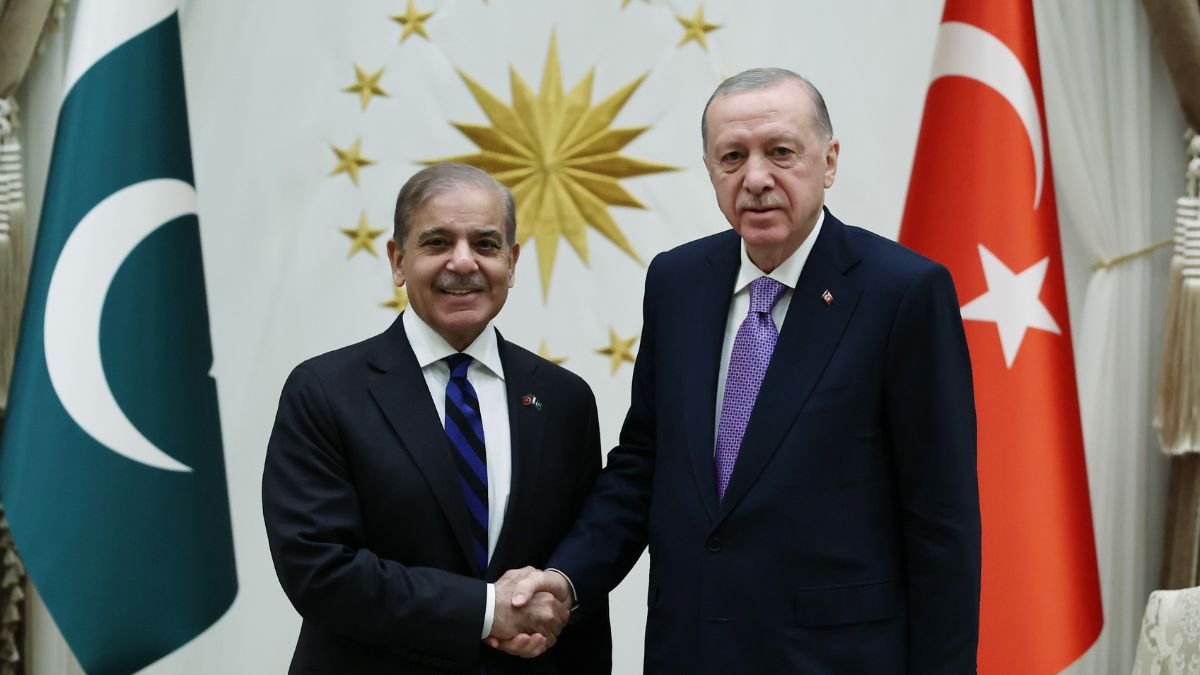

Pakistani Prime Minister Shehbaz Sharif is meeting with Turkish President Recep Tayyip Erdogan in Istanbul today amidst escalating tensions between India and Pakistan and a growing boycott of Turkish businesses in India. The meeting, confirmed by Erdogan's communications chief, Fahrettin Altun, will address bilateral relations, regional security, and counter-terrorism efforts.
This high-level discussion occurs against a backdrop of strained diplomatic relations following India's boycott of Turkish goods and services after Operation Sindoor, India's counter-terror mission. Turkey was the only West Asian nation to openly criticize the operation and back Pakistan, deepening the divide between Ankara and New Delhi.
The tensions between India and Pakistan escalated following a terror attack in Kashmir on April 22, which resulted in the deaths of 26 people. India blamed Pakistan for the attack, a charge Islamabad denies. Subsequently, India launched airstrikes on alleged terror camps in Pakistan-administered Kashmir and Pakistan on May 7. Pakistan retaliated by deploying Turkish-made drones into India.
Turkey's response to these events, particularly President Erdoğan's expression of concern over India's airstrikes and warnings of a broader conflict, triggered a surge of nationalist sentiment in India. This has led to widespread calls for a boycott of Turkish goods, services, and partnerships. E-commerce platforms like Myntra and AJIO have removed popular Turkish fashion brands, and the All India Consumer Products Distributors Federation has urged its members to stop selling Turkish food and cosmetics. India's aviation ministry also revoked the security clearance of a Turkish ground-handling firm, Çelebi, operating at nine Indian airports.
The Confederation of All India Traders (CAIT) has called for a boycott of all trade and commercial engagement with Turkey and Azerbaijan, citing their support for Pakistan. This includes halting imports from these countries and discouraging any engagement with companies or institutions based in Turkey and Azerbaijan. CAIT has also declared that the business community will boycott Indian films shot in Turkey and Azerbaijan and warned corporate houses against filming any product promotions in these two countries.
The impact of the boycott is already being felt. Travel bookings to Turkey and Azerbaijan have fallen, while cancellations have jumped. In Udaipur, a hub for marble processing, traders have stopped importing Turkish marble. While the Indian government has not officially endorsed the boycott, the pressure from civil society and business groups is mounting.
Despite the economic consequences, Turkey has remained a strong supporter of Pakistan. The Turkish-Pakistani defense relationship has also drawn attention, with Turkey supplying military equipment to Pakistan. Turkey insists these were routine deployments and denied transporting arms, yet reports confirm the use of Turkish-made Songar drones by Pakistan during the conflict with India.
Turkey and Pakistan share deep-rooted historical and ideological connections. Their partnership, grounded in a shared Islamic identity, dates back to the Cold War era. Since Erdogan's rise to power in 2003, the relationship has grown even closer, shaped by shared views on political Islam and opposition to secular Arab regimes.
In light of these complex dynamics, the meeting between PM Sharif and President Erdogan is particularly significant. It presents an opportunity to reaffirm their strong bilateral ties. The leaders are expected to review the cooperation processes carried out under the High-Level Strategic Cooperation Council and address regional developments and international issues, including counter-terrorism.